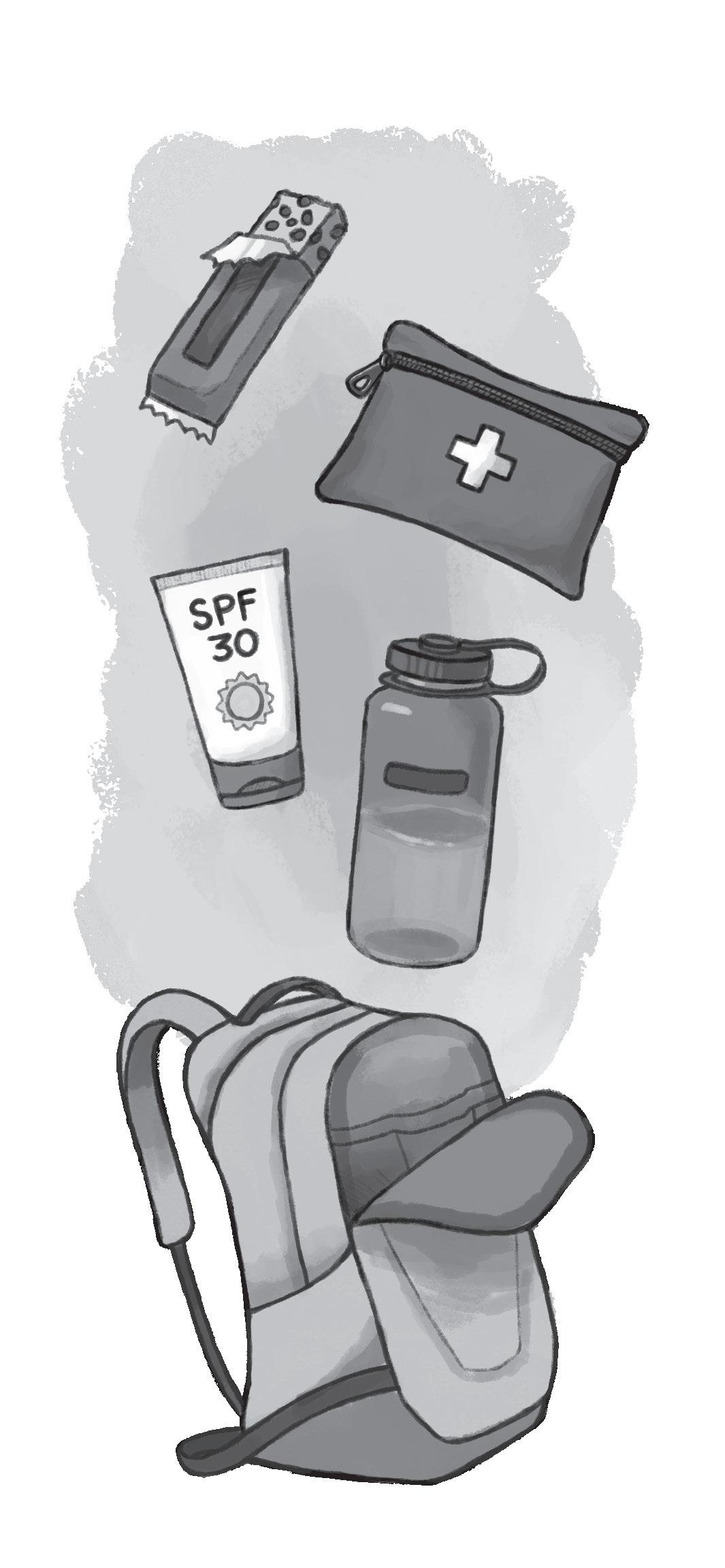
1 minute read
Safety in the Mountains
Setting Out for the Mountains...Safely
It is your responsibility to be safe and to know and obey park guidance. You can find information and rules at visitor centers, trailhead bulletin boards, and the park website at nps.gov/grsm.
BASIC PACK LIST
• Water, a water filter, tablets, or the ability to boil water
• Food including plenty of snacks • Extra layers (base layer, jacket, socks) for changing conditions • Sun protection with sunscreen, sunglasses, and/or a hat
• Rain gear and pack cover to keep what you are carrying dry (zippered plastic bags inside your pack can do this too) • Traction support like hiking poles or microspikes • Navigation—Map and compass and the knowledge of how to use them • Shelter in the form of a tent or tarp • Flashlight or headlamp and batteries • Fire starter with a lighter, strike stick, and something to light • Knife or multi-tool
• Emergency whistle • First aid kit with all the essentials to care for common accidents
• Permit for camping overnight
IN AN EMERGENCY:
• Never hike alone or split up from your party. Remain on established trails. • If you can acquire a signal, call emergency dispatch (865.436.9171) or dial 911. • Remain with any injured party until help arrives. • Use what basic first-aid techniques you know, but do not attempt invasive intervention unless you are medically trained. • Issue a series of three spaced blasts on an emergency whistle every few minutes to alert the rescue crew of your location. • If you are in an open area visible from the air, display brightly colored clothing or gear.
Plan ahead: Inform the NPS backcountry office of your itinerary before you hit the trail so the emergency response crews will know where to begin looking. Let the NPS help you plan a hike and prepare for what you may experience along the way (865.436.1297, 8 a.m. – 5 p.m.).









